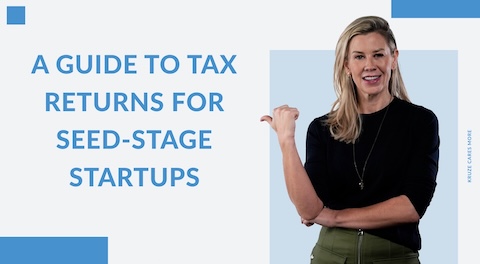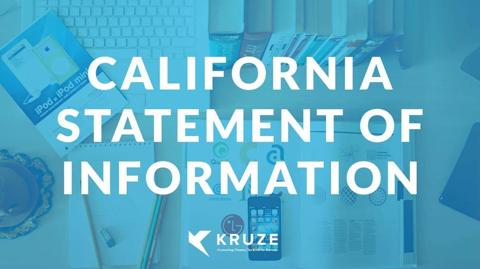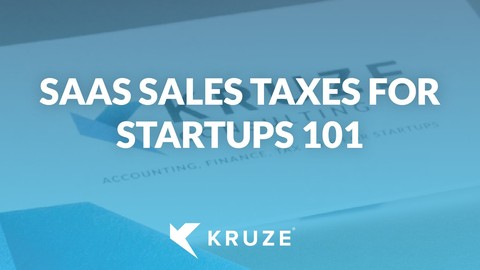
There is a new(ish) law that offers tax credits for small businesses that set up 401(k) plans. This law really was NOT designed for unprofitable tech startups.
Normally when we mention startups we’re talking about early-stage companies, but in this instance we’re talking about tax credits for small businesses that start up retirement plans for their employees. These tax credits were enhanced by the Setting Every Community Up for Retirement Enhancement (SECURE) Act passed in 2019, and the changes took effect Jan. 1, 2020. So let’s look at some questions and answers about the program.
Does 401(k) tax credit apply to my startup?
Not if you’re not earning income yet. Tax credits, like the 401(k)/retirement plan startup one created by the SECURE Act, are dollar-for-dollar reductions in the income tax your startup owes. If you don’t have income, you can’t use the credits. This means that most VC-backed startups are NOT going to have any use for this particular government incentive. If you are a startup looking for tax credits, check out our tax credit page – there are in fact programs that can help startups save money, specifically the R&D tax credit, which can provide up to $250,000 a year to unprofitable startups.
If you’re earning income, there are three specific eligibility requirements. Your startup must:
- Have 100 or fewer employees who were paid at least $5,000 in the preceding year.
- Cover at least one non-Highly Compensated Employee (HCE) with the retirement plan.
- For three years before you are eligible for the credit, your employees were not “substantially the same employees who received contributions or accrued benefits in another plan sponsored by you.” In other words, it has to be a new retirement plan, not one already in existence.
How does the 401(k) tax credit work?
An eligible small business can claim the credit to offset the costs of adopting a new retirement plan and/or a new automatic enrollment program for up to three years. Retirement plans include a Simple Employee Pension (SEP) plan, a SIMPLE IRA, and other qualified plans like 401(k)s.
How much is the tax credit worth?
The SECURE Act revised the amounts of the tax credits that can be claimed. The credit is for qualified retirement plan startup costs, is available for up to three years, and the limits are now the greater of:
- $500
- The lesser of either $250 multiplied by the number of non-HCEs or $5,000.
Small businesses also can get an additional $500 tax credit by adding an automatic enrollment feature to a new or existing retirement plan, and that’s available for the first three years the automatic enrollment program is effective.
All total, a qualified small business could get $16,500 in tax credits ($5,500 per year for three years).
What are qualified startup costs?
These are costs that your business incurred to set up and administer a qualified retirement plan, or educate employees about the plan.
What is a Highly Compensated Employee (HCE)?
The IRS defines an HCE as:
- A employee who owned more than 5 percent of the business at any time during the current or preceding (lookback )year, regardless of compensation, or
- An employee during an initial plan year whose compensation during the preceding (lookback) year exceeds specific dollar limits ($130,000 in 2021 or $135,000 in 2022).
How can my startup claim the tax credit?
Your company will need to file IRS Form 8881, Credit for Small Employer Pension Plan Startup Costs) with your annual tax return.
For more information about this tax credit or to determine your eligibility, please contact us.
It’s not just about tax credits
Setting up a 401k for your startup employees is a commendable step, showcasing growth and a forward-thinking approach to hiring and retaining your team. And even though most traditional VC-backed startups can’t get a tax credit for setting up a 401(k), there are some great reasons to offer retirement plans for employees.
Tips on choosing a provider
For any startup founder, key considerations when choosing a 401k provider include ensuring minimal administrative overhead, user-friendly digital interfaces, solid compliance support, promotion of employee participation, and transparent cost structures with reasonable fees. Additionally, the plan should feature diverse investment options and clearly defined fiduciary responsibilities. Within the realm of startup 401k providers, options range from automated to manual. While automated providers, like Guideline and Human Interest, integrate seamlessly with payroll and provide a good user experience, manual providers, like Vanguard, might be cheaper but require more hands-on involvement. Tax credits for 401k setups are available, but primarily benefit profit-making companies. As startups navigate this journey, it’s essential to avoid pitfalls such as non-compliance with non-discrimination testing and to delegate fiduciary duties effectively. For a comprehensive guide on the subject, follow the link provided.
Tax Return Cost Calculator
Pros and Cons of the startup 401(k) tax credit
Pros
- Reduces corporate taxable income
- Smart incentive for SMBs to start a retirement plan
- Not particularly difficult to apply for and get
Cons
- Despite the name, doesn’t help most VC-backed startups
- Not worth the effort if the startup doesn’t have profits
- Only reduces taxable income, doesn’t provide any money to the startup if it’s not profitable















